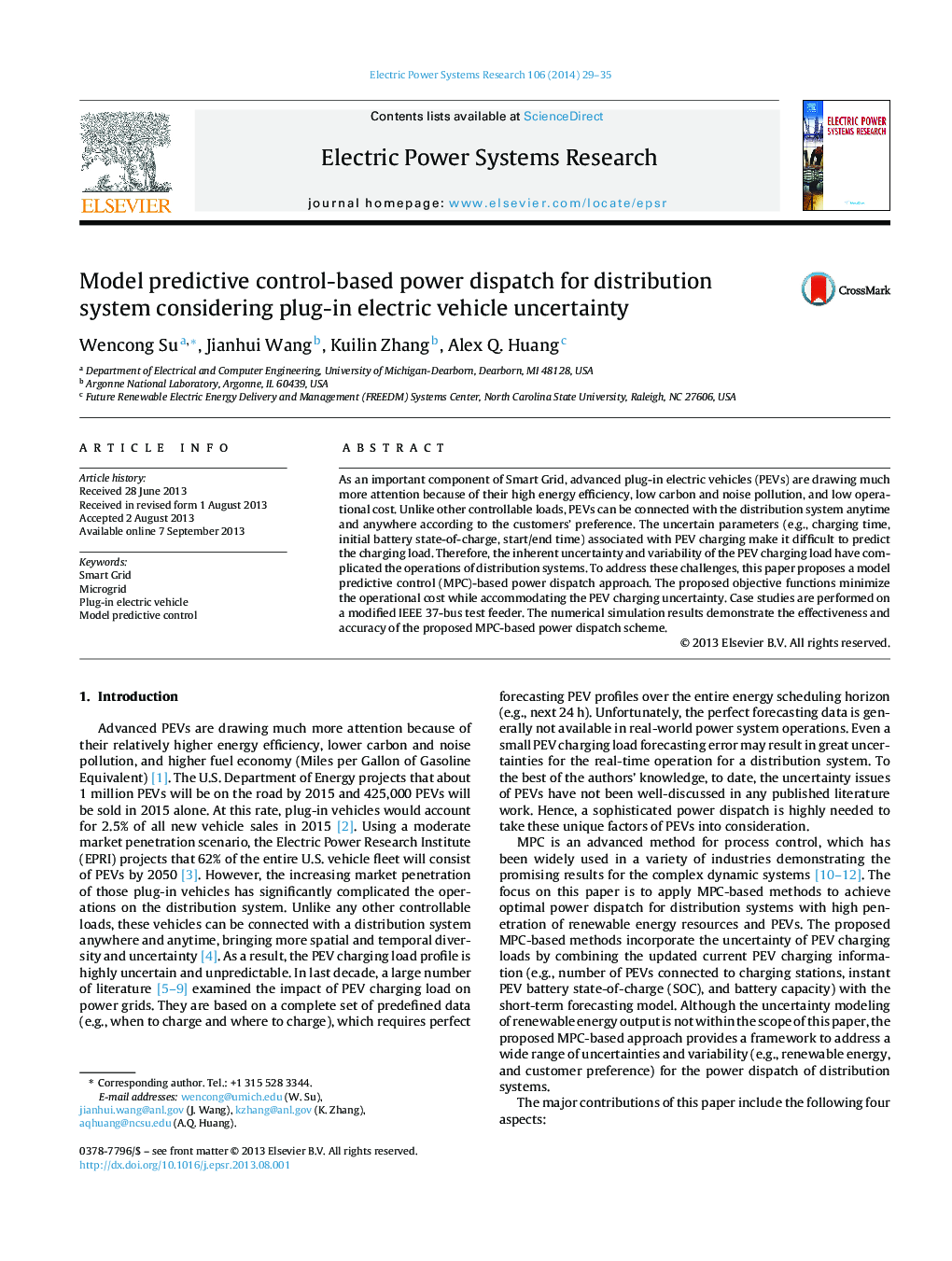| Article ID | Journal | Published Year | Pages | File Type |
|---|---|---|---|---|
| 703697 | Electric Power Systems Research | 2014 | 7 Pages |
•Formulate power dispatch model to minimize the operational cost and the risk of energy transaction with the utility grid.•Propose a MPC-based on-line power dispatch method to accommodate the uncertainty and variability of PEV charging load.•Investigate the impact of PEV uncertainty under various charging schemes and operational conditions.•Evaluate the performance of a variety of power dispatch models at the distribution level considering PEV uncertainty.
As an important component of Smart Grid, advanced plug-in electric vehicles (PEVs) are drawing much more attention because of their high energy efficiency, low carbon and noise pollution, and low operational cost. Unlike other controllable loads, PEVs can be connected with the distribution system anytime and anywhere according to the customers’ preference. The uncertain parameters (e.g., charging time, initial battery state-of-charge, start/end time) associated with PEV charging make it difficult to predict the charging load. Therefore, the inherent uncertainty and variability of the PEV charging load have complicated the operations of distribution systems. To address these challenges, this paper proposes a model predictive control (MPC)-based power dispatch approach. The proposed objective functions minimize the operational cost while accommodating the PEV charging uncertainty. Case studies are performed on a modified IEEE 37-bus test feeder. The numerical simulation results demonstrate the effectiveness and accuracy of the proposed MPC-based power dispatch scheme.
